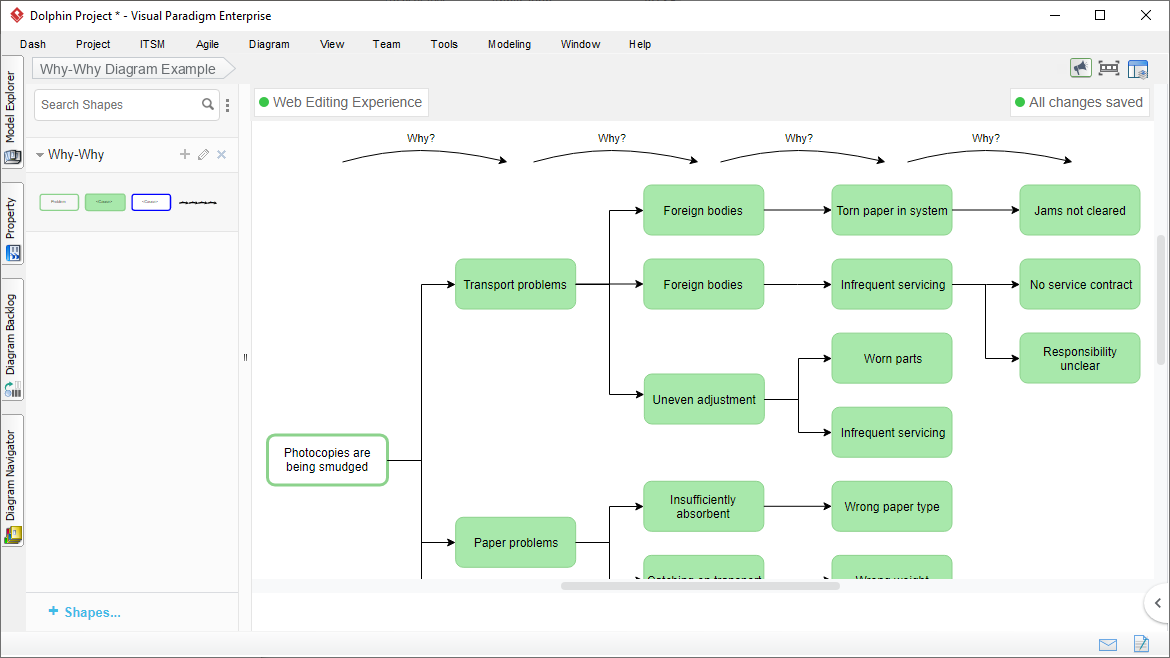An easy and powerful Why-Why Diagram tool

Visual Paradigm features a why-why diagram tool that you will love working with. The why-why diagram tool offers an intuitive drag-and-drop interface and symbols that suit different purposes. You can create a why-why diagrams quickly and easily, and share the result with others through a range of image formats.
